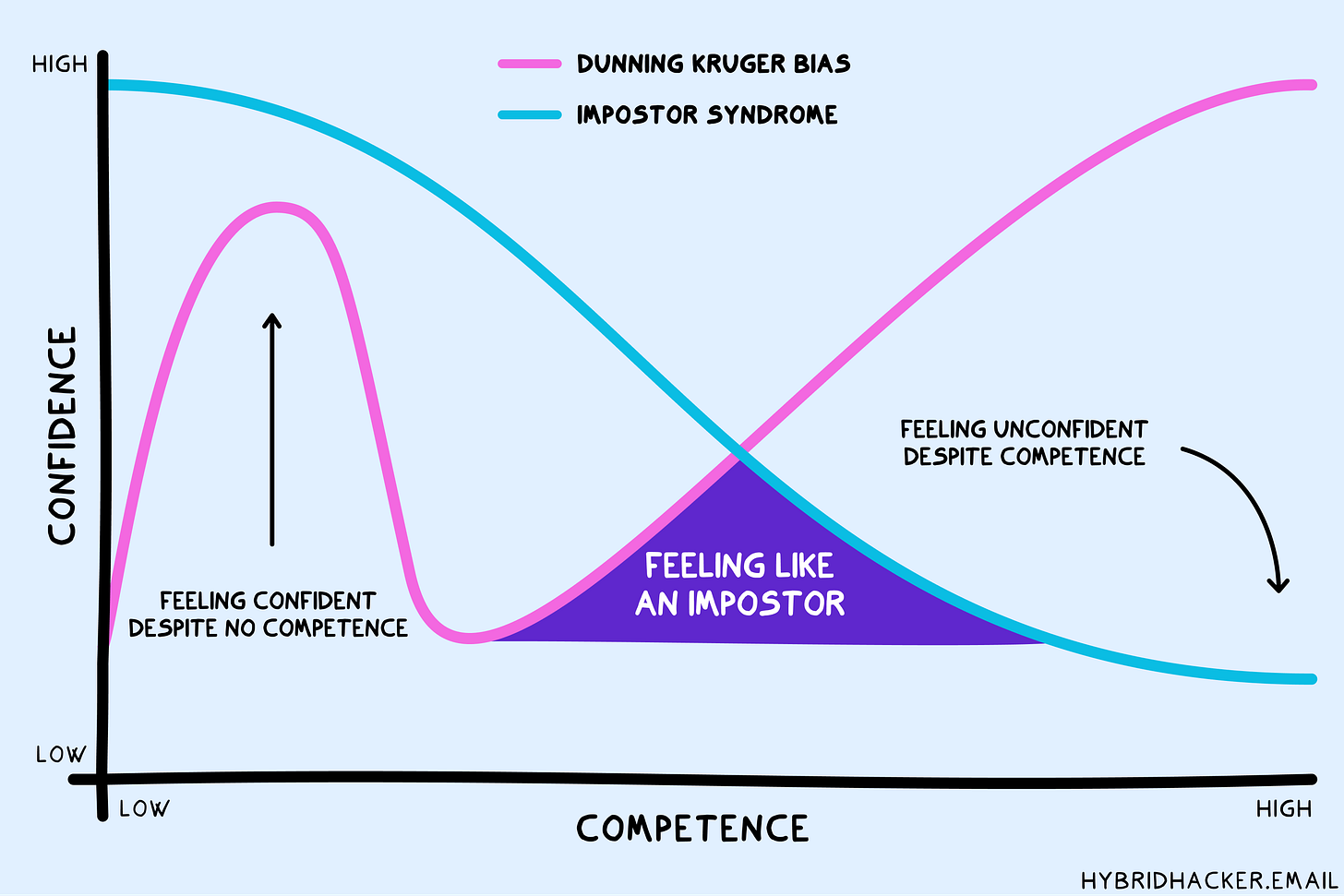Dealing with Impostor Syndrome in the Engineering World
Practical advice on how to deal with one of the most common psychological states in engineering.
If I had to mention a feeling that accompanied my last 25 years of career in the engineering field, I’d probably say the fear of not being up to my position.
This holds true for when I was an individual contributor at the beginning of my career, and it grew as I advanced into more strategic and leadership roles.
This is what is commonly—and incorrectly—referred to as Impostor Syndrome.
A lot has already been written about this psychological pattern. I admit, I’ve had this article in my backlog for months, always reluctant to publish it, thinking I’d just be repeating the obvious; if you think about it, this reluctance is a sign of the impostor phenomenon itself.
In reality, before writing this article, I wanted to collect enough information and reflect on how I’ve experienced it to share my unique point of view and, as I always try to do, offer practical advice on how to deal with it.
So, with this in mind, today we are going to explore Impostor Syndrome in all its facets, and precisely:
💭 What Impostor Syndrome is
🧠 Some psychological concepts related to this emotional phenomenon
🦠 How Impostor Syndrome affects engineering environments
🥊 How to fight this feeling
As always, we have a lot to cover, so let’s begin!
💭 What is the Impostor Syndrome?
The first thing I want to clarify is that, despite its name, impostor syndrome is not a clinical syndrome or a psychiatric disorder.
So, while it’s commonly referred to as a syndrome, and for convenience, I will use this term throughout this article, keep this in mind.
Impostor syndrome is a psychological phenomenon in which individuals doubt their accomplishments and persistently fear being exposed as "frauds" despite external evidence of their competence.
The term was first coined by psychologists Pauline R. Clance and Suzanne A. Imes in 1978 when they observed this phenomenon in high-achieving women. Since then, research has shown that impostor syndrome can affect anyone, regardless of gender, job status, or level of success.
Though not a recognized disorder, impostor syndrome can significantly impact an individual’s mental health, leading to anxiety, low self-esteem, depression, and stress.
Dunning Kruger Bias and Impostor Phenomenon
Another way I find useful to understand the impostor phenomenon is to compare it with the well-known Dunning Kruger effect.
The Dunning-Kruger effect is a cognitive bias where individuals with low ability in a particular area overestimate their own competence. So, in some way, it’s the opposite of what happens with the impostor phenomenon.
On the other hand, this effect also notes that highly competent individuals might underestimate their relative competence, assuming that tasks that are easy for them are also easy for others.
Dunning Kruger Effect: shows that individuals with lower actual competence tend to overestimate their abilities (overconfidence), peaking in confidence at lower levels of competence. This confidence starts going down when they gain competence and this often leads to feeling impostors.


